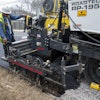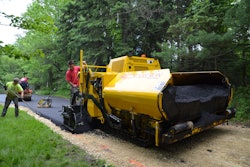Speaking from an asphalt maintenance contractor’s point of view, many of us try to be a “one-stop shop,” but as easy as it might sound on paper, reality can prove otherwise.
Let’s dig into this a little more deeply.
Like many contractors, we became a one-stop shop gradually. It started with striping and progressed naturally into sealing and pavement repair. At one point we had developed uncontrolled growth and had to scale back, but the desire to provide all related services continued – and even flourished.
As I have talked with contractors all over the country, I have found many reasons why people want to be a one stop shop, from being the only person close by to offer certain services, to a way to expand revenue, and as a way to attract bigger clients who require a one-stop shop.
But the big question is, are we doing more harm than good by diversifying our businesses? With the diversification comes growth, which includes more costs and potentially less profit. However, there is the argument that by increasing revenue you are headed to even greater success and making your clients happy...right?
Well, here’s one thing I’ve learned that has remained the same in any scenario – whether you perform one service or diversify into a full-service pavement maintenance contractor: If you do what you are doing well, then your chances of success are far greater. Sounds obvious, right?
Don’t Be a “Master of None”
Often as people diversify, they get spread so thin that they become a “Jack of all trades,” yet are “master of none.” In other words, they might offer a number of different services but don’t excel at performing any of them. From an owner’s standpoint, I believe that if we are really good at what we do – be it one service, two, or more – it’s that which will dictate our success more than the number of services we offer (or anything else for that matter).
I look at several competitors who have pursued the one-stop shop model, and what I see is that they are stretched thin; and being stretched thin has forced them into cutting corners just to stay afloat. I can see it in reduced crew sizes, cheaper products, watering down materials, or simply skimping on proper application methods. So again, is it worth it?
My company is a one-stop shop, and while we own every piece of equipment needed to self-perform any aspect of the job, we often partner with friendly competitors to make the one-stop shop model easier. My suggestion to most is to be as “lean and mean” as you can be, as often it’s easier and more manageable being a smaller operation.
Consider Subcontracting to Diversify
I’ve always said that it appears to me that the smaller guys and the very large guys are the ones flourishing, whereas the guys in the middle seem to struggle the most as they try to grow. Why? Simply put, it’s easier for the smaller guys to be “leaner and meaner.”
The larger guys usually have grown to a point that they have figured out what they need to succeed and have so much cash flow that it’s not a factor like it can be for a mid-sized guy. The mid-sized guys generally struggle the most as they are still trying to figure out their identity in the business world: Should they be smaller? Should they try to become a big guy? Can they make it if they’re mid-sized? The mid-size contractors are most susceptible to uncontrolled growth and the out-of-control costs that can eat anything made profit-wise, leaving them strapped for cash – and often out of business.
I would also encourage you to look to partnering or subcontracting, as it can create the “circle of friends” as I call it. One of the biggest challenges to overcome is the thought that you are less of a company if you don't self-perform it all. However, once you find decent partners or subs, you toss them work and they can do the same for you. I once had a friend that had so much work from other contractors that it nearly filled his schedule with their work alone!
Each company generally has their niche. So if you can do more of what you’re good and fast at, and less of what you are not, that’s a win-win. You get the jobs you want, performing what you do well (and most profitably) and subbing work to others who perform that service best; and your client still benefits from having you as a one-stop shop.
I really struggled with this until I realized that by partnering with others we could give our clients even better service, make more money, and be more efficient at what we did self-perform. We live by the “lean and mean” motto, and what we do we do very well, exceeding expectations.


![Lee Boy Facility 2025 17 Use[16]](https://img.forconstructionpros.com/mindful/acbm/workspaces/default/uploads/2025/09/leeboy-facility-2025-17-use16.AbONDzEzbV.jpg?auto=format%2Ccompress&fit=crop&h=100&q=70&w=100)








![Lee Boy Facility 2025 17 Use[16]](https://img.forconstructionpros.com/mindful/acbm/workspaces/default/uploads/2025/09/leeboy-facility-2025-17-use16.AbONDzEzbV.jpg?ar=16%3A9&auto=format%2Ccompress&fit=crop&h=135&q=70&w=240)








